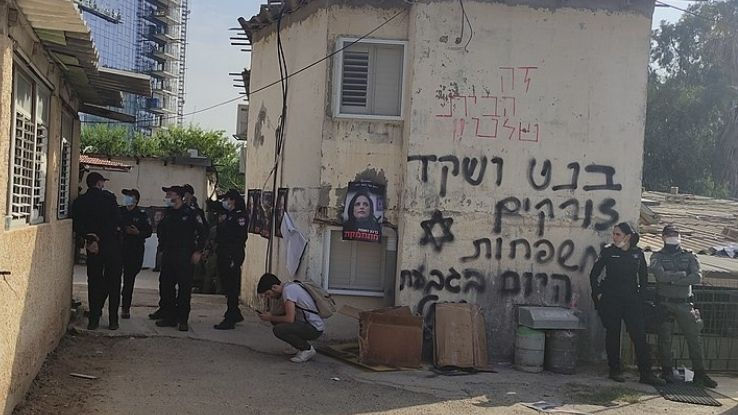Givat Amal Eviction: Police Received Roughly NIS 2 Million
- ACRI
- Dec 23, 2021
- 2 min read

On November 15, 2021, over 1,000 police officers evicted approximately 11 families from the neighborhood of Givat Amal in Tel Aviv, and dispersed social activists who came to support the families and protest the eviction. The incident included a disproportionate number of forces deployed to the area, along with access blocked to many roads leading to the area, so as to prevent activists from reaching the neighborhood. Many officers wore neither name tags nor did they carry body cameras as required.
Thereafter, ACRI appealed to the police with a freedom of information request, seeking to know whether paid police officers had been assigned to the incident. In response to the request, the Israel Police confirmed that paid police officers had been assigned to aid in enforcing the eviction order at the contractor’s request. As is well known, businessman Yitzhak Tshuva purchased the land on which the houses of Givat Amal stood.
The police dispatched 554 on-duty officers and an additional 606 salaried officers, for whom NIS 1,868,671.44 was designated by the police. The Israel Police explained that it had taken into consideration, among other things, the scope of the incident; its nature and essence; concern that public order would be disturbed, and public safety would be compromised, in view of threats and intentions to barricade the site.
According to Sivan Tahel, ACRI’s Field and Freedom of Protest Coordinator: "At no stage did any activists or residents pose any threat to public safety, and the Israel Police’s attempt to turn a legitimate protest into an incident of potential violence serves the contractor who also purchased police services."
Legally, there is a strict ban on the use of paid police officers at demonstrations, and even if some of the police were engaged in evicting tenants, one can only wonder whether the purpose of the excessive privately purchased police force was to deter, intimidate, and quash public protest. The number of police officers present at the incident, and steps taken to ensure their presence, raise suspicion that economic considerations distorted police discretion.
Two decades ago, the High Court of Justice addressed the employment of salaried police officers with mistrust, noting: "The phenomenon appearing before our eyes – a police officer performing paid policing alongside one’s routine work as a police officer – is by its very nature a foreign phenomenon to the police’s work. And mixing routine police activity with salaried work, entails mixing oil and water. And mixing oil and water – as we’ve long known – does not end well" (HCJ 5009/97 Multimedia Co. Ltd. v. Israel Police (August 13, 1998)).








